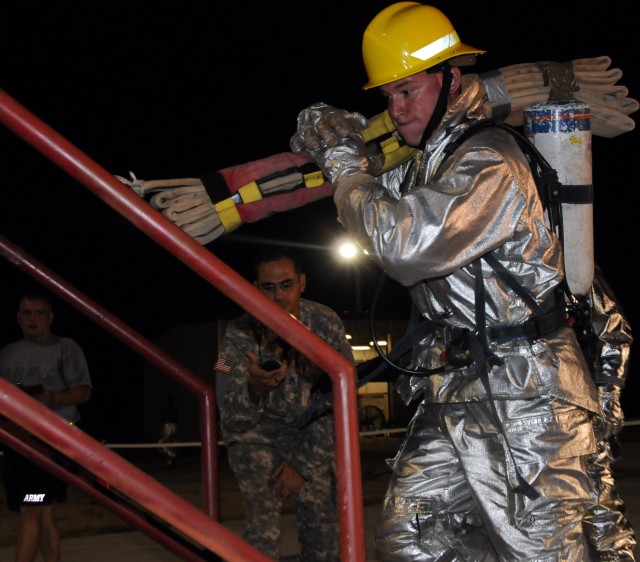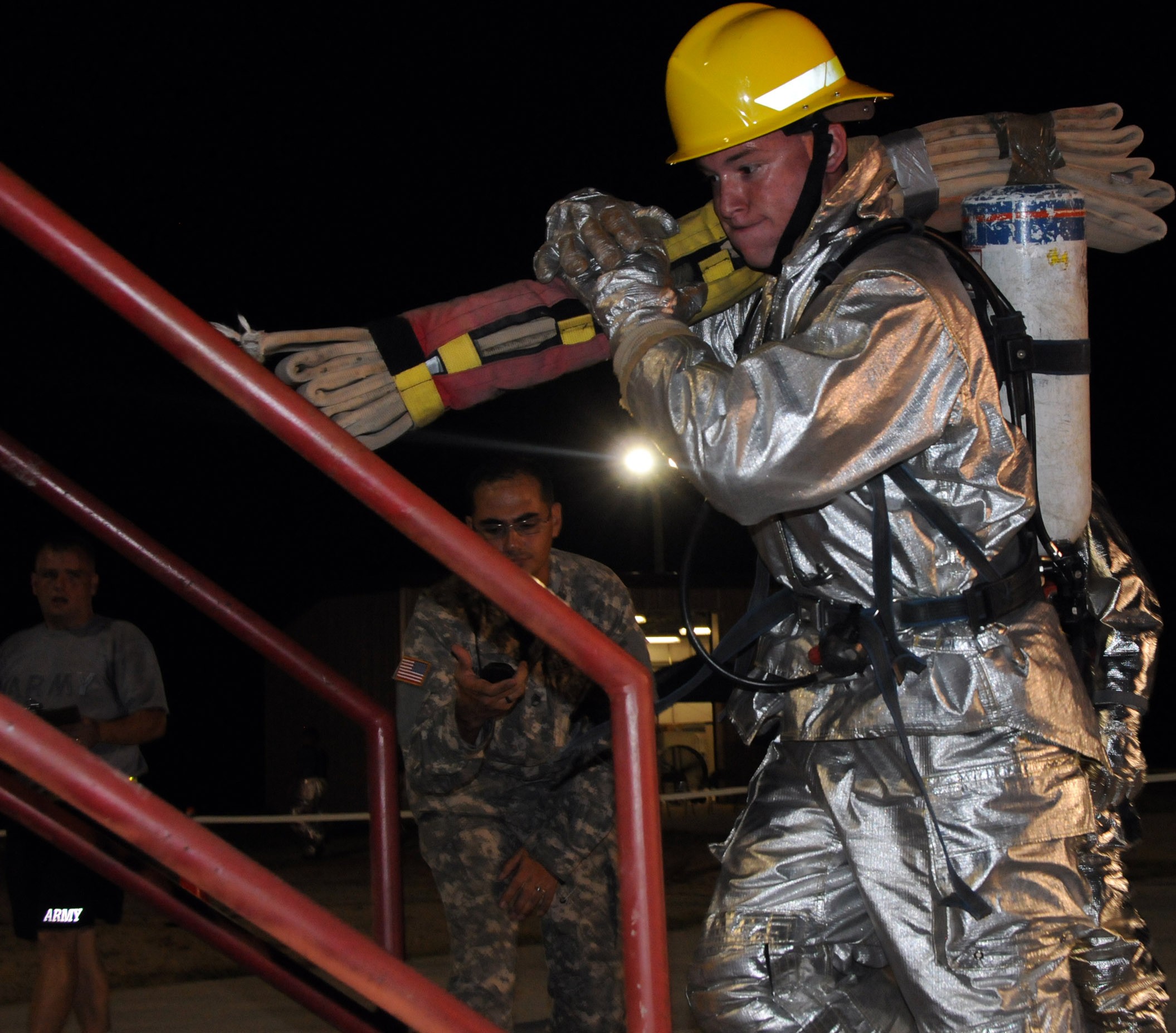Although today marks the end of National Fire Prevention Week, Installation Management Command (IMCOM) officials say fire safety concerns remain a constant priority as Army installations experienced more than 300 reportable fire incidents in the first three quarters of fiscal year 2010 - resulting in three deaths, nine injuries and $18 million of damages, said Gerald Adams, IMCOM fire protection specialist.
"We are committed to keeping Soldiers and their Families prepared and safe whether deployed or at home ... every day, every week, every month, every year," said Adams.
"This year's campaign, "Smoke Alarms! A Sound You Can Live With," is designed to educate people about the importance of smoke alarms and encourages everyone to update and maintain their home smoke alarm protection," added Michael Scott, fire chief, U.S. Army Garrison Directorate of Emergency Services.
"Let's all do our part and test home detectors." People shouldn't think they'd be able to detect a fire, said Adams.
"If you were asleep and a fire broke out in your home, do you think the smoke would awaken you' If you think so, you may be dead wrong. In fact, fire and smoke are sedatives that will only put you into a deeper sleep while the squelching sound of a smoke alarm will awaken you," said Adams.
Adams advised that individuals should install and maintain a smoke alarm on every level of the home; never remove or disable smoke alarms; test smoke alarms monthly by pushing the test button; replace the battery right away if an alarm "chirps," warning the battery is low.
Some smoke alarms have strobe lights, also called visible notification appliances, which signal people with hearing loss.
If you own battery-operated smoke detectors, replace batteries at least twice a year, usually when changing to daylight saving time.
There are two basic types of smoke alarms: ionization and photoelectric. A combination of the two alarms will allow sensors to detect slow-and fast- developing fires. They provide an early, audible warning of a potential fire, allowing time to escape, which can reduce the risk of dying from a home fire by almost half, said Adams. Army Family Housing leases executed on or after Oct. 1, 2006, and renewals or extensions of existing leases on or after Oct. 1, 2007, require hard-wired and interconnected smoke alarms throughout the building.
Leases executed prior to those years have smoke alarms installed in hallways leading to bedrooms. Occupants can, at their own expense, install additional smoke alarms. Army barracks have smoke alarms installed in all sleeping areas.
Fire Prevention Week was established to remind individuals of fire safety and followed the Great Chicago Fire of 1871 that killed more than 250 people, left 100,000 homeless and destroyed more than 17,400 structures.
In 1920, President Woodrow Wilson issued the first National Fire Prevention Day proclamation.
National Fire Prevention Week has been observed since 1922.


Social Sharing